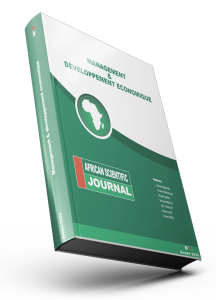Household waste management assessment in an urban resilience process: case of abidjan district (côte d’ivoire)
DOI:
https://doi.org/10.5281/zenodo.7142590Keywords:
functional analysis, urban resilience, household waste, Abidjan districtAbstract
Urban resilience remains a dynamic process in which the functioning of the various sectors of activity including the household waste management service has a great influence. Thus, this study aims to carry out a functional analysis of the household waste management service in the district of Abidjan in order to be part of this process. The urban system and the waste management service of the Abidjan district constituted the study material. The method used was external and internal functional analysis. The results show that the urban system of the Abidjan district is part of an external environment (physical, social and economic environment) and an internal environment (population, activities, habitats, urban space and urban infrastructure sub-systems). In the case of the urban infrastructure subsystem, there is, among others, the global waste management service subsystem. The household waste management service is within this subsystem. The external functional analysis defined five (5) main and eleven (11) constraint functions. The internal functional analysis shows at the structural level that the waste management service consists of a single subsystem. Regarding of the design functions established for the “food and leftovers «component, waste flows (9 relations), nuisance flows (2 relations), control links (2 relations) and information flows (7 relations) were obtained. The functional analysis shows that certain essential functions are missing from the household waste management service in the Abidjan district.
Downloads
Published
How to Cite
Issue
Section
License
Copyright (c) 2022 African Scientific Journal

This work is licensed under a Creative Commons Attribution-NonCommercial-NoDerivatives 4.0 International License.





















